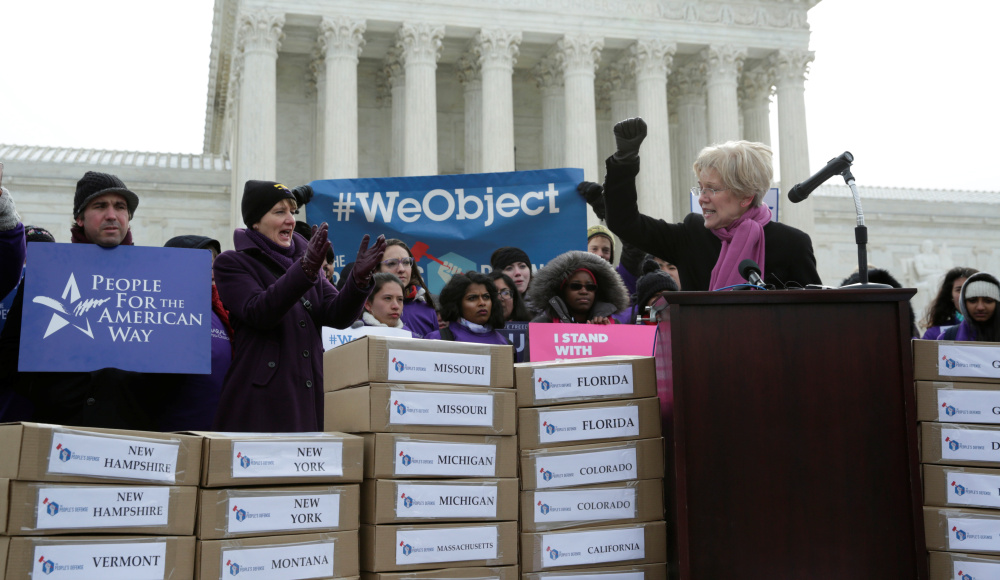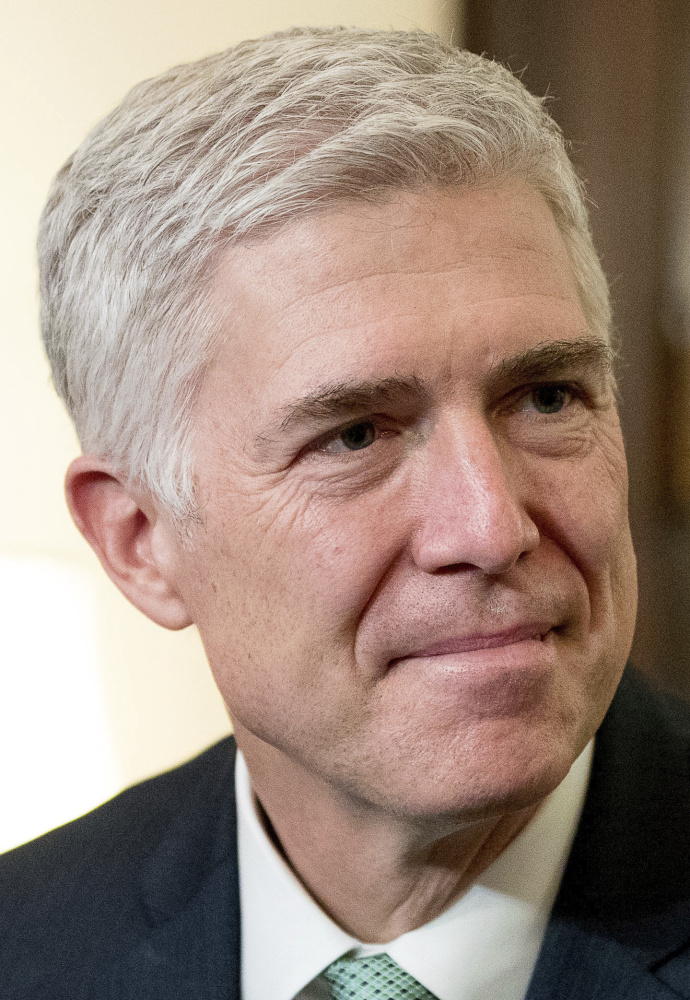WASHINGTON — Thirteen months after the death of Justice Antonin Scalia, the Senate is finally holding confirmation hearings to fill the vacancy, considering President Trump’s choice of Neil Gorsuch for the high court.
Republicans refused to even grant a hearing to former President Obama’s choice, Merrick Garland, insisting the next president should decide.
Now, the Senate will exercise its “advice and consent” role, a politically fraught decision with liberals pressuring Democrats to reject Gorsuch.
On Monday, Gorsuch and the Judiciary Committee’s 20 members will give opening statements. Gorsuch will answer questions Tuesday and Wednesday, and outside witnesses will testify Thursday.
WHAT DOES THE CONSTITUTION SAY?
The Constitution lays out the process in just a few words, saying the president shall nominate Supreme Court justices “by and with the advice and consent of the Senate.” Senate rules and tradition dictate the rest. Trump nominated Gorsuch, a judge on the Denver-based 10th U.S. Circuit Court of Appeals, on Jan. 31 and set the process in motion.
THE PREPARATION AND DAY ONE
Gorsuch has met with 72 of the 100 senators in advance of his hearings. Like other nominees, he has participated in mock questioning facilitated by the Trump administration.
On Monday, Gorsuch will have to sit through 10-minute statements from each of the 20 members of the committee, which will take several hours. After that, Gorsuch will finally speak, delivering his own 10-minute opening statement.
THE QUESTIONS AND ANSWERS
In past hearings, the questions have centered around the nominee’s legal qualifications, decisions as a judge, positions on political issues, interpretations of the Constitution, general legal philosophy and current legal controversies.
The stakes are high with any court pick, and especially now as confirmation of Gorsuch would ensure a conservative advantage on the court.
Gorsuch will face the same dilemma of many nominees before him – how to answer the questions clearly and concisely without weighing in on issues that could come before the court or get himself in political trouble.
Democrats are likely to push him if he is reluctant. Senate Democratic leader Chuck Schumer of New York has already criticized him for deflecting questions when he asked him during their meeting whether Trump’s immigration ban is constitutional.
THE OTHER WITNESSES
The fourth and final day of the hearings, Thursday, will feature outside witnesses, usually former colleagues and advocacy groups who will testify for or against Gorsuch. In the past, one of the first to testify has been the chair of the American Bar Association’s Standing Committee on the Federal Judiciary. That group has given Gorsuch a unanimous “well qualified” rating.
THE COMMITTEE VOTE
By tradition, the committee will report the nomination to the Senate floor even if the majority of the panel opposes the nominee, so the full Senate can have the ultimate say. So instead of approving or rejecting the nominee, the committee will usually report the nomination favorably, unfavorably or without recommendation.
Gorsuch is expected to be reported favorably by the Republican-led committee.
Send questions/comments to the editors.




Success. Please wait for the page to reload. If the page does not reload within 5 seconds, please refresh the page.
Enter your email and password to access comments.
Hi, to comment on stories you must . This profile is in addition to your subscription and website login.
Already have a commenting profile? .
Invalid username/password.
Please check your email to confirm and complete your registration.
Only subscribers are eligible to post comments. Please subscribe or login first for digital access. Here’s why.
Use the form below to reset your password. When you've submitted your account email, we will send an email with a reset code.